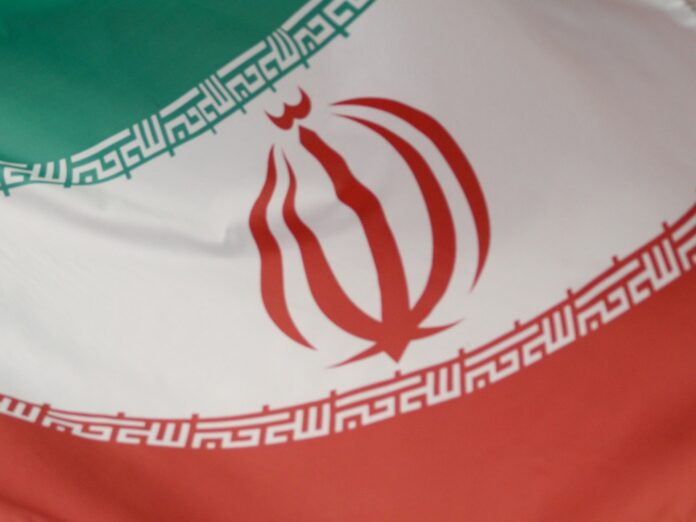Iran has recalled its envoys to the United Kingdom, France and Germany for consultations, according to state media, after the three European countries triggered a mechanism reinstating the United Nations’ sanctions on the Islamic Republic for the first time in a decade.
“Following the irresponsible action of the three European countries to reinstate repealed UN Security Council resolutions, Iran’s ambassadors to Germany, France and the United Kingdom have been summoned to Tehran for consultations,” state news agency Tasnim and others reported on Saturday.
Recommended Stories
list of 3 itemsend of list
The move came a day after Russia and China failed to delay the revival of the international sanctions on Iran at the 15-member UN Security Council, as only four countries supported their draft resolution, opening the door for sanctions to be reimposed.
The E3 countries set the clock ticking a month ago for the “snapback” of the UN sanctions, accusing Iran of failing to come clean on its nuclear programme – including through countermeasures it took in response to bombing by Israel and the United States during a 12-day June conflict that Iranian authorities say killed more than 1,000 people.
The sanctions, set to go into effect at 00:00 GMT on Sunday, will set up a global ban on cooperation with Iran on nuclear, military, banking and shipping industries. Iran’s national currency, the rial, fell to new all-time lows on Saturday, trading for more than 1.1 million per US dollar in Tehran’s open market.
The International Atomic Energy Agency on Friday said some inspections had resumed at Iranian sites this week, but did not say whether this included sites bombed by the US and Israel, where nuclear material could be buried. In Moscow for the World Atomic Week forum, Iran’s nuclear chief Mohammad Eslami once again blasted the UN nuclear watchdog for refusing to condemn the air strikes on the Iranian nuclear sites.
Western powers rejected at least two Iranian proposals to defer snapback over the past days, saying they did not see enough progress to agree to a delay after a week of top-level diplomacy at the UN General Assembly.
Iranian President Masoud Pezeshkian said there was no reason to reach a deal when, in his view, Israel and the US were seeking to use the pressure to topple the theocratic establishment.
“If the goal had been to resolve concerns on the nuclear programme, we could easily do that,” Pezeshkian told reporters, as he insisted again that Iran will never pursue nuclear weapons.
He also accused the US of pressing the Europeans not to reach a compromise.
Steve Witkoff, the US envoy to the Middle East, claimed on Wednesday that the US does not want to hurt Iran and was open to further talks, but said snapback was “the right medicine for what’s happening”.
The sanctions are aimed at imposing new economic pain to pressure Iran, but it remains to be seen if all countries will enforce them.
Russian deputy ambassador Dmitry Polyansky said on Friday that Moscow, a top partner of Iran, considered the reimposition of sanctions “null and void”.
The US and the E3 already impose unilateral sanctions on Iran and have tried to force all other countries to stop buying Iranian oil, although companies from China have defied the pressure. The US has imposed a series of sanctions on Chinese entities related to oil imports.
Trump started a “maximum pressure” campaign during his first term when he withdrew from a landmark 2015 nuclear agreement, negotiated by former President Barack Obama, which had offered sanctions relief in return for drastic curbs on Iran’s nuclear programme.

The new sanctions mark a “snapback” of the UN measures that were suspended under the 2015 deal.
Israeli Prime Minister Benjamin Netanyahu in a defiant UN address on Friday urged no delay in the snapback and hinted that Israel was willing to again strike Iran’s nuclear programme.
Pezeshkian said Iran would not retaliate against the sanctions by leaving the nuclear non-proliferation treaty, warning that unnamed powers were seeking a “superficial pretext to set the region ablaze”.
The Islamic Revolutionary Guard Corps (IRGC), which directed Iran’s retaliatory attacks on Israel during the war, issued a statement on Saturday to mark the first anniversary of the assassination of Hezbollah Secretary-General Hassan Nasrallah, senior IRGC commander Abbas Nilforoushan and others in major Israeli air raids on Beirut.
It said “active and smart resistance” remains the only solution for the region against Israeli “expansionism”, adding that the US and Israel have failed in fulfilling their “evil plans” to destroy the Iran-backed axis.
Ali Larijani, secretary of Iran’s Supreme National Security Council, was in Lebanon on Saturday to participate in a ceremony to mark the anniversary, telling reporters it is now clear to all countries that Israel “shows mercy to no country”.
Meanwhile, Iran’s judiciary announced on Saturday that four Iranians were sentenced by a court for being part of a “spy network” for Israel’s Mossad agency and the outlawed Mojahedin-e Khalq (MEK) group, with two given the death penalty and the other two sentenced to life in prison.


